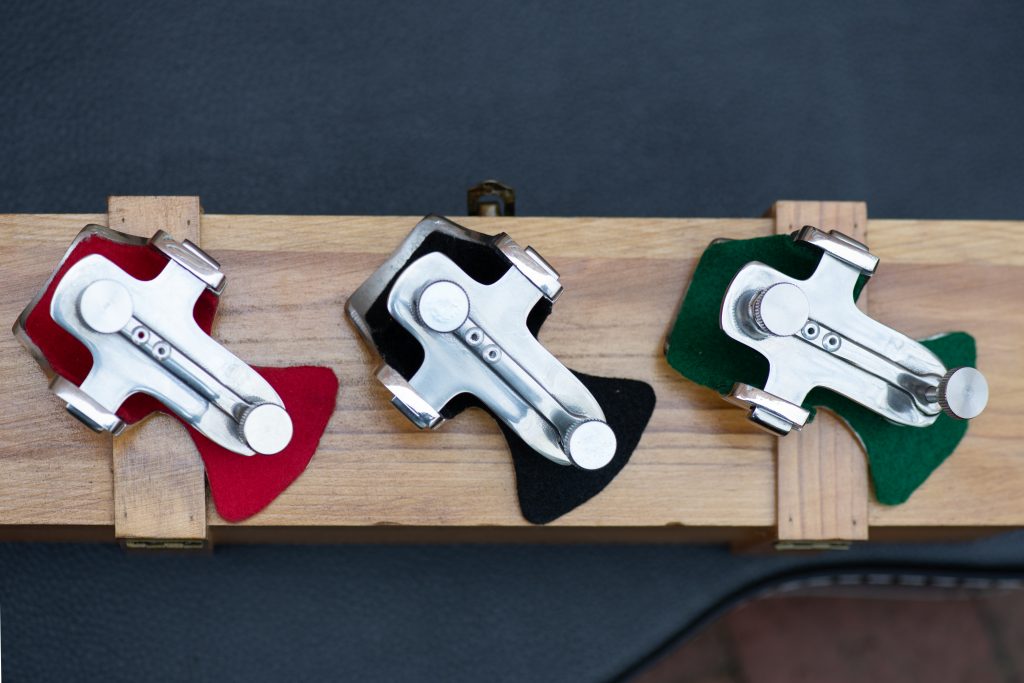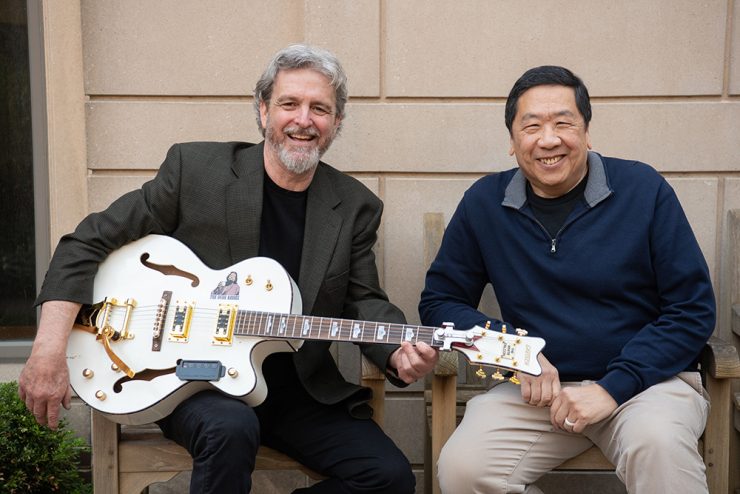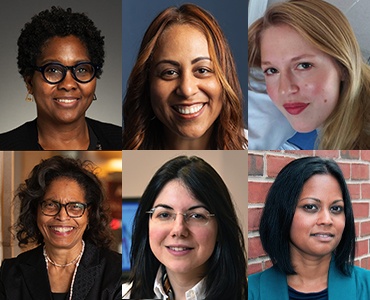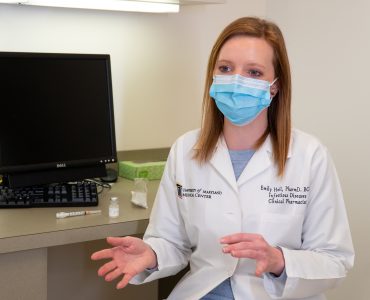The Intellectual Property and Entrepreneurship Clinic (IPEC) at the University of Maryland Francis King Carey School of Law is helping Marylanders realize the American Dream, according to clinic director and law school professor Patricia Campbell, JD.
“We’re taking clients who come to us with just an idea and we’re cultivating it to the point where they’re setting up businesses that are earning money and supporting people and creating jobs,” she says.
Now in its fifth year, IPEC was established in 2018 as an expansion of the law school’s longstanding Intellectual Property Law Clinic. The inclusion of the entrepreneurship component ensured an even greater impact on the startup community in Maryland, as well as outstanding educational opportunities for students.
In the 2021 academic year alone, IPEC student attorneys filed 15 patent applications, 40 trademark applications, and four copyright registrations while creating three limited liability companies.
Pat Geraghty, a lifelong music hobbyist and professional electrician, has been an IPEC client since 2014 when he sought out the clinic’s advice about a device he created to regulate electrical voltage for guitar amplifiers. When Geraghty displayed his invention called the Brown Box at a music trade show, he started getting calls from music legends such as the Eagles and Rock and Roll Hall of Famer Sammy Hagar who were interested in his innovative product. Geraghty knew he needed help to protect his invention, but the cost of a patent attorney was prohibitive for the self-proclaimed “workaday guy” from New Market, Md.
After reading an article about law school clinics providing affordable services to people like himself, Geraghty reached out to Maryland Carey Law and was connected to Campbell.
Geraghty says working with the clinic was a blessing that helped catapult his idea into a successful business, AmpRx Power Solutions, which sells several amp attenuating devices including the Brown Box. “Had it not been for the clinic, I wouldn’t be where I am because I wouldn’t have known what to do. I never would have been able to afford a patent attorney,” he says.
Things worked out splendidly for Geraghty, whose AmpRx success culminated in the sale of the company in January to entrepreneurs in Nashville.
The success came as no surprise to Campbell, who shared that during the 2021 academic year 16 student attorneys helped 78 clients representing a broad range of technologies and consumer products and services, including virtual reality, artificial intelligence, COVID-19 detection, diabetes detection, blood clot treatment, video gaming, drone fleets, information security, orthopedics, prosthetics, content streaming, wineries, and more. “Our students, under the supervision of staff attorneys, are helping clients set up businesses that are having a real impact on Maryland’s startup economy,” she explains.
‘It Really Begins to Click’
Ian Murray, a third-year law student who participated in IPEC in fall 2022, enjoyed his experience working with clients. “Once you work with a couple of clients, the rubber really hits the road,” he says. “It really begins to click, and you realize this is why we came to law school.”
Campbell is familiar with the “aha” moment students experience when they can work on real cases with real people.
“This is an amazing experience for students that they would not otherwise get until they graduated and became practicing attorneys,” notes Campbell, who says student attorneys interview clients, draft patent and trademark applications, and advocate for their clients with the U.S. Patent and Trademark Office.
Murray says filing trademark applications for his clients’ fledgling businesses helped him to come down from the ivory tower of law school and connect to people on a human level. “You get an appreciation for these new and startup businesses,” he says. “Their logos and patents are their blood, sweat, and tears, and their businesses are sometimes their life savings. You want this person to be successful because you know how much work they put into it.”

While Murray is proud to assist clients, he credits the “awesome practitioners” and supervising attorneys Ed Yee, JD ’97, Julie Hopkins, JD ’04, and adjunct professor Katherine Taylor, JD ’86, with a portion of his success. “They are there to support us as we interact with clients and answer any questions that require experience we don’t have yet.”
Electrician, entrepreneur, and music dabbler Geraghty is not resting on the laurels of his recently sold company. He sold AmpRx so that he can focus on his new venture, Atlas C1, a brace for string instruments that protects the neck during shipping and storage. Organically inspired, the product is named for the Atlas C1 vertebrae, which is the first vertebrae in the neck that holds the head on, Geraghty says with a chuckle. “The response has been overwhelming, and there’s been a lot of interest,” he says.
Throughout his eight-year relationship with Maryland Carey Law, IPEC has filed numerous trademarks for Geraghty and provided top-notch legal advice. The Atlas C1 patent issued in March 2022 is Geraghty’s first patent. It was obtained under the expert guidance of Yee and his students.
“I couldn’t be more grateful,” Geraghty says. “I tell everyone about IPEC — friends, family, business associates. Whenever I hear someone discussing patents or trademarks, I tell them about my experience at the law school. IPEC has been instrumental in my success.”




